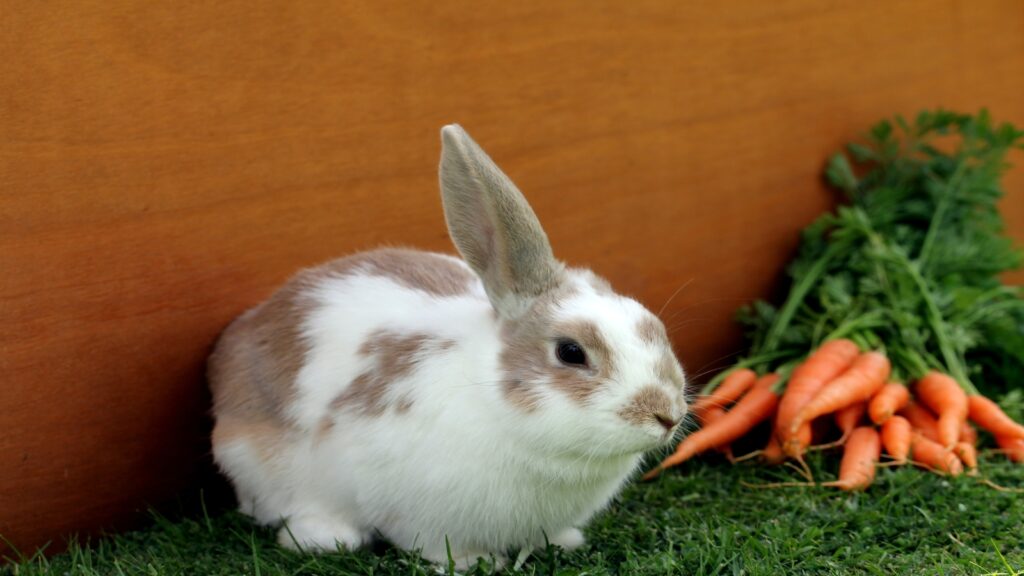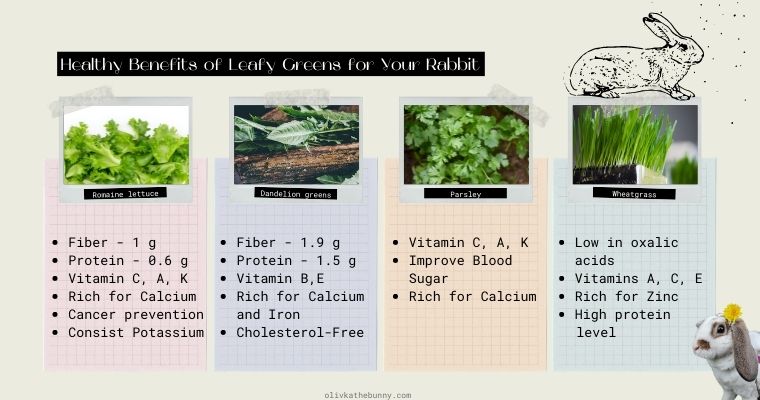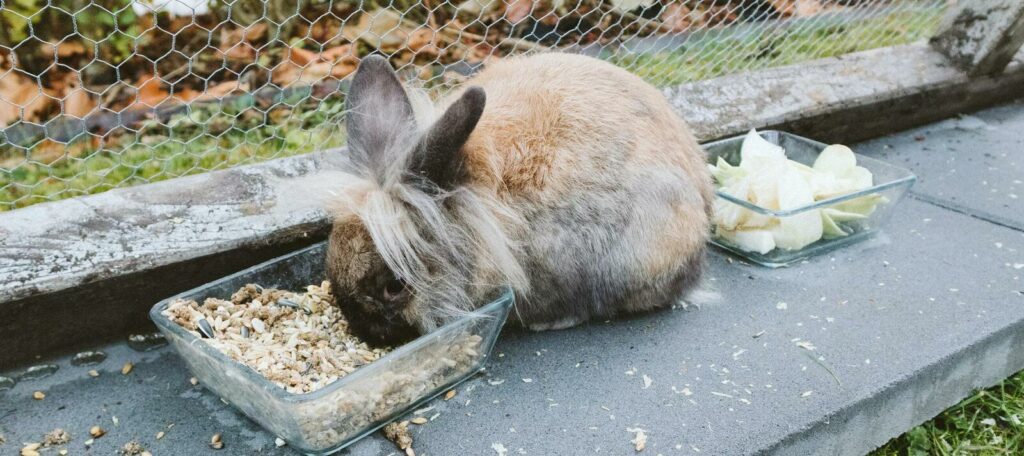I’ve been a house rabbit owner for a year now, and I still have to admit that I was mostly clueless about their dietary needs when I first got my bunny. There are so many opinions out there on what is safe for rabbits to eat, and what they should be fed in order to stay healthy. The best way to find the answer is by doing your research! But if you don't have time or just need some quick advice before making any purchases, then this blog post will help you decide which vegetables are best for your pet bunnies.

There are many fresh vegetables, fruits, leafy greens and other healthy treats that you can give to your bunny! Some examples include carrots, apples (minus their seeds), pears, celery stalks, broccoli leaves and roots (as well as cauliflower), cucumbers, green beans. However, there are some other veggies that can harm your pet rabbit. Here is a general outline of acceptable vegetables for your adult rabbit diet.
Fresh foods are important in the diet of your rabbit since they provide additional nutrients as well as varied textures and tastes, which are beneficial to your buddy. Fresh foods are also good for your rabbit's kidney and bladder function, as it provides more moisture in a diet.
A rabbit's favorite food is actually carrots! They are not only delicious, but they also contain ingredients that rabbits need to stay healthy. Carrots have a high level of vitamin A which is good for your adult rabbits eyesight and immune system. Plus it has beta-carotene antioxidants that fight against cancerous cells in the body, making them one of the best vegetables for decorative rabbits. Also, there is almost no waste as you can feed him carrot tops too!
Broccoli is a great source of nutrients for the rabbit diet. It contains high amounts of calcium, Vitamin C and fiber which will provide them with all their daily needs. Broccoli can be a little tough on the teeth though so make sure you chop it up into tiny pieces before feeding your bunny!
Cauliflower is a great vegetable for house rabbits to eat. It's filled with vitamins and nutrients that are healthy for your rabbit, as well as being very easy to digest even if it isn't cooked perfectly. Cauliflower is also extremely low in calories so it won't make your bunny fat by eating too much of it!
Another thing about cauliflower that makes it a good choice is that the leaves around the base can be eaten by your pet as well because they're equally nutritious and tasty! The whole plant should be thrown into their cage during meal times or until they finish eating all of what you give them. Just remember not to feed them too much of it as too much fiber can make rabbits sick.
Greens are an excellent addition to any healthy rabbit's diet but always remember that if they eat too many greens then this could cause serious health problems for them so make sure they don't get more than about one cup of greens per five pounds of rabbit body weight each day. Always introduce new foods gradually over several days and take note of how your rabbit's digestive system is doing.
In general greens with less water content such as kale leaves or parsley make better additions to a rabbit's diet than those with a higher moisture content like lettuce or cilantro. Greens also provide important nutrients including calcium, iron, and vitamins A & C. They're especially beneficial if introduced at an early age when a rabbit's digestive system is not yet fully developed.

Romaine lettuce is a leafy green that rabbits should eat regularly. It provides the rabbit with necessary nutrients and fiber, which can help it stay healthy overall and promote good digestive health. To feed your pet some romaine lettuce: remove the large ribs so they are easier to chew down on; chop up or tear apart small pieces of leaves into tiny bits for easy consumption; place in bowl as an entire head so the bunny has access to as much as possible without making a mess all over its eating area.
Watch out for signs of upset stomachs, such as drooling or diarrhea — if this happens immediately stop feeding them more until you consult your veterinarian. You can also consider feeding your rabbit a whole head of romaine lettuce when it is in the mood for something different from time to time, but make sure you remove any wilted or brown leaves beforehand and provide fresh water at all times during mealtime.
Dandelion greens are another great option because it is free from pesticides and easy to find in both organic grocery stores as well as your own backyard (just make sure you don't use the ones from your yard that may have been sprayed with chemicals and wear gloves to protect yourself). It's also a very nutritious choice for rabbits.
Parsley is a green that rabbits should be given as part of their diet. The leafy greens have many benefits for the rabbit such as improving digestion and lowering blood pressure. It's important to note though that too much parsley can cause an upset stomach so it shouldn't make up more than a quarter of the dietary intake each day.
Wheatgrass is a common staple in the diets of rabbits. Wheatgrass can benefit any rabbit, regardless of age or sex. Wheatgrass has many health benefits and it's good for bunny teeth! It also helps with digestion and can even help prevent certain diseases such as cancer and arthritis! Wheatgrass contains proteins, vitamins C & E, magnesium, calcium, potassium, and iron so don't be afraid to give your bunnies some wheatgrass daily because this plant will make them happier than ever before! Plus they'll get plenty of fiber that will keep their digestive system running smoothly every time they need to go potty.
Rabbits should avoid eating vegetables like onions, garlic, potatoes (including peels), nuts, and avocado because they are poisonous to them. Avoid tomatoes too as some rabbits cannot digest them properly.

1 tablespoon of non-leafy green vegetables per 2 pounds of body weight per day is a general guideline. A rabbit weighing 3 pounds should eat roughly 1/8 cup (2 tablespoons) pellets, 1.5 cups leafy greens, and 1.5 tablespoons chopped vegetables (non-leafy greens). It's suggested that you offer 3 to 5 distinct kinds of greens and veggies each week, alternating them day by day.
Just remember bunnies need grass hay as well as protein-based foods so just because something looks like veggies don't mean it's safe for them! Don’t forget - bunny's diet!
Signs that indicate something is wrong include diarrhea, gasping at air when bunny is eating because bunny's stomach is really hurting, loss of appetite, and lethargy. If bunny gets blocked up or does not have enough water in his diet it can lead to serious health problems like bladder stones which are not only very painful but also life-threatening if left untreated!
The farmer's market is a great way to get fresh produce. However, this may be more expensive than the grocery store depending on where you live and what time of year it is.
You should also check out other options that might provide vegetables for rabbits such as pet stores or even online retailers if they're available in your area.
Just like every other animal, rabbits have certain dietary needs that must be met in order for them to live healthily and happily. Their diet is different from what you would feed hamsters or guinea pigs because rabbits are herbivores rather than omnivores. That means their digestive system requires more fiber as well as higher levels of protein compared with animals who eat meat along with plant material.
As you can see, feeding your rabbit is not as simple as it seems. Nevertheless, following these tips will help you keep your bunny healthy and happy. Be careful with the veggies they eat because some of them are poisonous for pet rabbits or could give them diarrhea if they have too much of them. Always provide plenty of high quality grass hay to chew on so that their teeth don't grow too long and always make sure there's enough water available at all times - both fresh water and clean bathwater. Finally, never forget to check how rabbit reacts after eating a new food before deciding whether this particular one is good for him or her! If anything doesn't seem right contact the veterinarian immediately.

Hi! My name is Olga and I'm a bit of an animal lover. I've had several small pet animals through the years and I've learned a lot about them - from caring for them, to understand their behavior.
I'm a fan of rabbits, hamsters, and guinea pigs in particular, but I also love visiting rescue centers to learn more about other furry friends. It's amazing how much personality these little creatures can have - they're certainly not just "cute" animals!